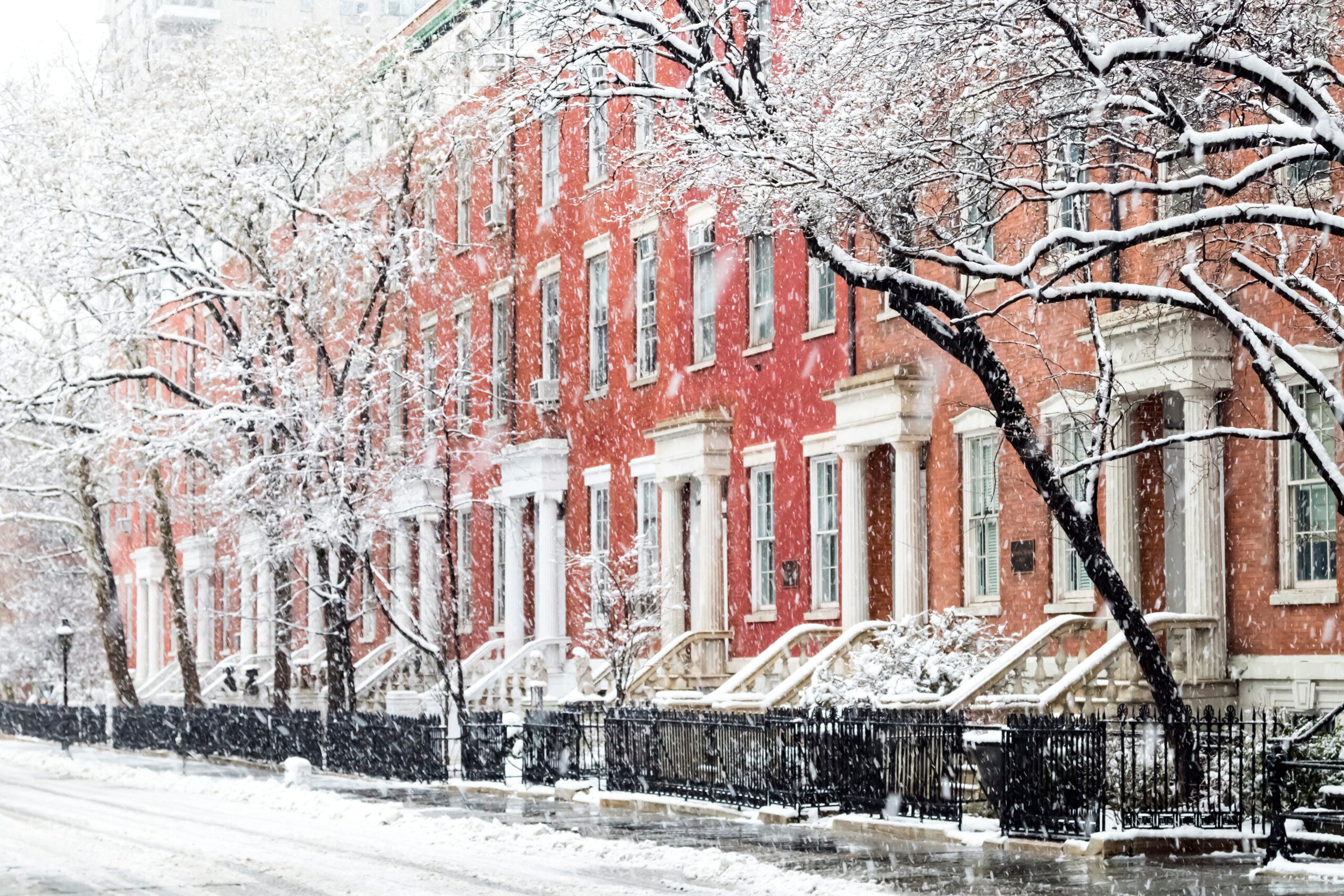Icy stoops and sidewalks are part of the winter experience here in New York. Our Preservation Services staff are often asked if deicing salts can be used on stone stoops.

City stoops were predominantly built of brownstone or limestone with mortar joints. Over time, many of these stoops have been resurfaced with tinted cement mixtures. All of these masonry materials are porous and tend to be damaged by repeated use of deicing products. Keeping your stoop less slippery while not causing undue damage to your historic masonry means using deicing products and salts thoughtfully.
Several deicing products are commercially available today, ranging from traditional rock salt to proprietary formulations of multiple chemicals. The various products have their own pros and cons, and there is no single best product that we recommend. In addition to considerations regarding masonry damage, deicing products can harm pets and vegetation and have wide-reaching negative environmental impacts. The New York State Department of Environmental Conservation advises, “Don’t be salty, New York!” and encourages the following to manage the use of deicing salt.
- Shovel what you can first. Removing snow and ice first helps reduce the amount of rock salt you’ll need.
- Think twice before you start spreading rock salt. You only need 12 ounces to effectively melt snow and ice on a 20-foot driveway.
- Know the temperature. Rock salt will not melt snow or ice below 15 degrees Fahrenheit.
With regard to historic masonry, the Conservancy also offers these tips.
- Mix your deicing products with sand. Sand increases traction while minimizing the amount of deicing salts needed. It works instantly and is more cost-effective.
- Apply deicing products sparingly only in the areas of the highest foot traffic.
- Concrete must be over one year in age, otherwise it can be severely damaged by deicing products before it is fully cured.
- Apply deicers away from the base of your building. They can cause damage to masonry facades, not just steps.
- In the spring, wash down stoops, sidewalks, building bases, and areas near vegetation to help disperse the product residue.
Contact the Landmarks Conservancy at 212.995.5260 if you have any technical questions. Stay safe this winter!
